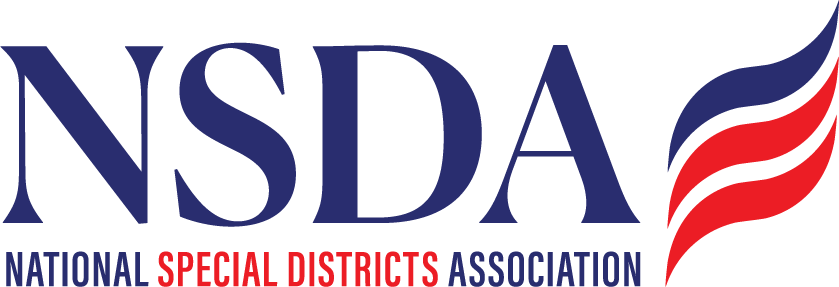Budget Reconciliation Bill News - July 1, 2025
Senate Narrowly Approves Reworked Megabill
After working throughout the weekend and late into Monday night, the Senate earlier today cleared its version of a massive budget reconciliation package. The sweeping measure would advance new and expiring tax cuts, invest hundreds of billions of dollars in border enforcement, roll back clean energy initiatives, and make significant cuts to various safety-net programs. The lengthy debate and amendment process in the Senate allowed Democrats, who remained unified in their opposition to the bill, to strike some provisions that conflicted with procedural requirements of the budget reconciliation process, as well as force their Republican counterparts to cast some difficult messaging votes.
Joining Democrats in opposing the bill were Senators Rand Paul (R-KY), Thom Tillis (R-NC), and Susan Collins (R-ME). In defending his vote, Senator Paul noted that the legislation would add hundreds of billions of dollars to the deficit, while Senators Tillis and Collins pointed to their longstanding opposition to provisions that would make deep cuts to the Medicaid program. In the end, a series of last minute-deals smoothed the way for the final Republican holdout – Senator Lisa Murkowski (R-AK) – to support the bill. With 50 Republicans endorsing the package, Vice President J.D. Vance was brought in to cast the tie-breaking vote to push the measure over the finish line.
Next Steps and Timing
The bill now heads to the House, where a number of members have expressed their deep displeasure with several modifications that were made in the Senate. Nevertheless, Speaker Mike Johnson (R-LA) is aiming to put the measure on the floor as early as Wednesday morning. It should be noted that the text of the final Senate bill became available only minutes before the chamber voted, meaning the Congressional Budget Office (CBO) has yet to produce a final cost estimate for the package heading into the House vote.
Senate Changes
While most of the substance of the Senate bill remained unchanged from an earlier version of the legislation, last minute negotiations resulted in several significant changes to the final text, including:
- Establishment of a Rural Hospital Fund: A priority for Senator Collins, the final Senate bill includes $10 billion annually over five years to mitigate the measure’s Medicaid cuts on rural hospitals. States would have to apply for these funds once, after which half of the dollars would be distributed equally and 40 percent would be allocated at the discretion of the Centers for Medicaid Services (CMS).
- Elimination of a Public Lands Sale Provision: A controversial public lands proposal championed by Senate Energy and Natural Resources Committee Chairman Mike Lee (R-UT) was removed from the legislation following a ruling from the Senate parliamentarian and bipartisan opposition.
- Offers Modest Clean Energy Protections: Senate Republicans removed a controversial tax on solar and wind energy projects and provided a tax credit phase-out for solar and wind projects that begin construction less than one year after the bill’s enactment. However, the legislation would still require other solar and wind energy projects to be placed in service by the end of 2027, which could threaten hundreds of planned projects.
- Eliminates AI Regulation Moratorium: In a 99-1 amendment vote, the Senate removed a controversial provision that would have restricted state-level regulation of artificial intelligence (AI).
- Provides Temporary SNAP Benefit Cost-Share Carve-Out for Some States: A key provision to secure Senator Murkowski’s vote, the final Senate bill would allow states with a Supplemental Nutrition Assistance Program (SNAP) Payment Error Rate (PER) above a certain threshold to delay implementation of the SNAP benefit cost-share by two fiscal years. States whose FY 2025 and/or FY 2026 PER is 20 percent or higher when multiplied by 1.5 would have until FY 2029 or FY 2030, respectively, to delay the cost-share. For all other states, the cost-share would kick in starting in FY 2027. The increased SNAP cost-share provisions will put additional fiscal pressure on state budgets.
Outstanding Issues for the House
Along with the aforementioned changes, the Senate bill includes other provisions that remain controversial in the House. For fiscal conservatives, that includes the Senate’s use of a budget scoring loophole to downplay the full cost of the budget reconciliation legislation over 10 years, its increase of the debt ceiling by $5 trillion (compared to the House’s $4 trillion), and its relatively scaled-back cuts to the SNAP program.
Meanwhile, moderates in the House have expressed concern over the Senate’s significantly deeper cuts to the Medicaid program via language to reduce provider taxes—a key financing mechanism for states—from 6 percent to 3.5 percent by 2032 and by reducing State Directed Payments by 10 percent annually until they reach 100 percent of the Medicare rate in expansion states. Should all House Democrats participate in the floor vote, Speaker Johnson would only be able to lose three Republican votes for the Senate bill to pass the lower chamber.
